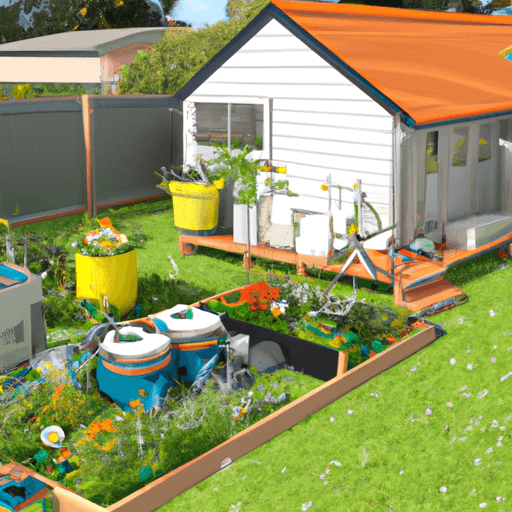Integrating Sustainable and Eco-Friendly Practices into Home Gardening
Introduction
As awareness of environmental issues grows, more people are turning to sustainable practices in every aspect of their lives, including gardening. Home gardening is a great way to contribute to environmental conservation. Employing sustainable and eco-friendly practices in home gardening goes beyond just planting - it's a holistic approach that considers the entire ecosystem. This article will guide you on how to integrate these practices and inspire green living in your home.
The Importance of Sustainable Gardening
Sustainable gardening plays a significant role in preserving our environment. It helps maintain biodiversity, conserves water, and reduces waste by recycling and composting. It also encourages the use of renewable resources, reduces dependence on artificial pesticides, and contributes to air and soil quality. Sustainable gardening practices ensure we live in harmony with nature, and leave a healthier planet for future generations.
Benefits of Eco-Friendly Gardening
Eco-friendly gardening offers numerous benefits for both the environment and the gardener. It protects the soil, conserves water, encourages wildlife, reduces carbon footprint, and creates a healthier living space. With eco-friendly gardening, homeowners can enjoy the rewards of fresh, organic produce, and beautiful, naturally controlled pests landscapes.
Eco-Friendly Gardening Tips
Eco-Friendly Gardening Tools
Choosing eco-friendly tool is an excellent place to start. Prefer tools made from sustainable, durable materials. Hand-powered tools can reduce the greenhouse gas emissions associated with gasoline-powered equipment.
Plant Selection
Selecting native, drought-tolerant plants can reduce water usage and support local wildlife. Choose from a variety of plants to create a balanced ecosystem that can naturally resist pests and diseases.
Composting
Composting is a natural process that transforms organic wastes into rich soil amendments. Investing in a compost bin allows homeowners to recycle kitchen scraps and yard waste, thus reducing waste and enriching the soil.
Water Conservation
Opt for rainwater harvesting and drip irrigation systems. These conserve water and deliver it directly where the plants need it most. Mulching and choosing the right time for watering can also significantly save water.
Natural Pest Control
Using natural pest control methods, such as companion planting, biological controls, and homemade remedies can help maintain a healthy garden without harmful pesticides. Dedicate a corner of your garden to nature to attract beneficial insects and birds.
Conclusion
Integrating sustainable and eco-friendly practices into home gardening takes effort but pays off in the long run. It promises a thriving garden, a healthier living environment, and a conscious contribution to preserving our planet. Embrace green living today and make the world a better place for tomorrow.



















Comments
Leave a Comment